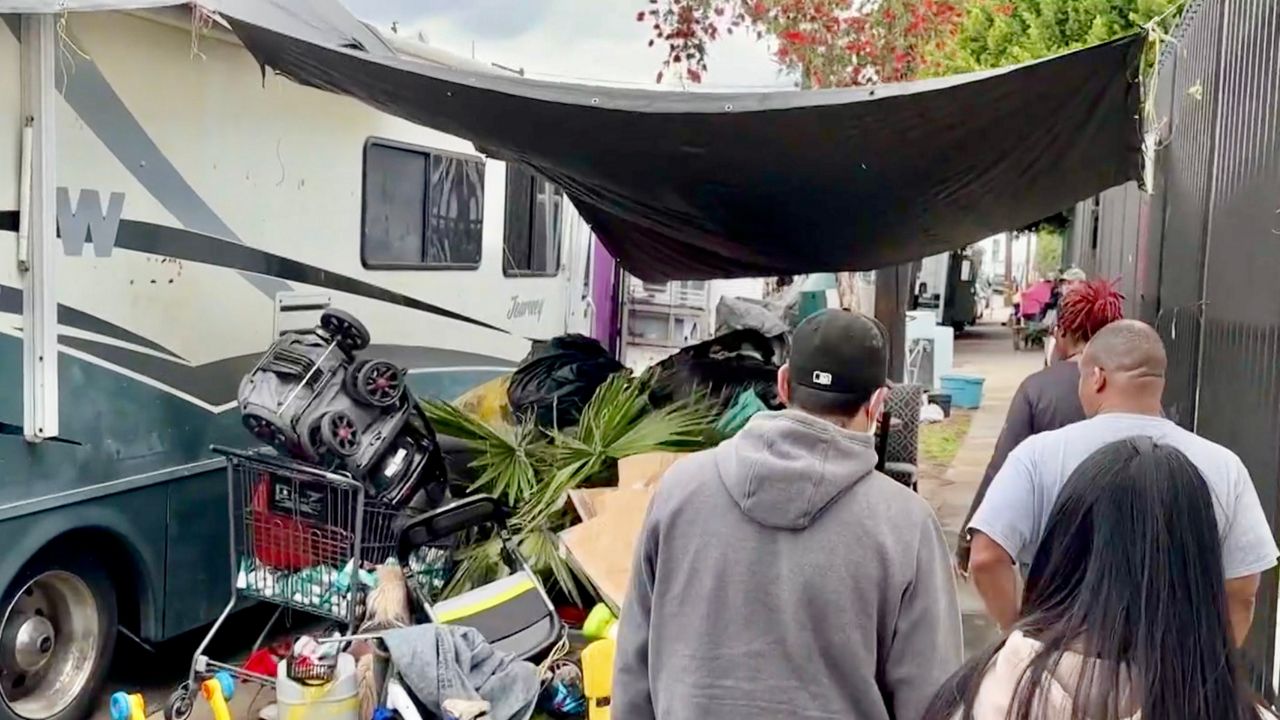LOS ANGELES — Mayor Karen Bass Thursday expanded her policy to use publicly-owned land to build more housing faster and to address RV encampments by increasing the city's capacity to tow, store and dismantle surrender vehicles.
"We are building on our progress and adapting our approach to bring more people inside, increase housing and save lives," Bass said in a statement. "We will work closely with our public sector partners to build housing on underutilized lands to urgently confront the homelessness crisis."
According to Bass, through the changes to her Executive Directive No. 3, the city will be able to tackle RV encampments more thoroughly by creating more space to properly dispose of RVs after people move into housing. The policy will aid in establishing future sites for RV safe parking to connect people with services, she added.
Bass signed the directive and it went into Feb. 2023, which was intended to maximize the use of city property for temporary and permanent housing. The city has been able to identify sites that can be used for up to 500 tiny home beds. These beds are expected to be funded through a $33 million state grant the City Council approved last week.
Additionally, the directive also resulted in the long-awaited Go For Broke & First Street North Project to come to fruition after more than 20 years of pre-development on city-owned land. It also helped launch interdepartmental working groups to facilitate more cost efficient and accelerated production of affordable housing.
In February, the Little Tokyo Service Center broke ground on the Go For Broke Plaza and First Street North Project, a mixed-use development replacing a city-owned parking lot next to the Japanese American National Museum at 232 Judge John Aiso St. It's expected to provide 248 affordable housing units in addition to ground-floor commercial space.
The updated directive will accelerate development of permanent and interim housing on land owned by the Housing Authority of the City of Los Angeles, Metro and the L.A. Community College District, as well as the city, the mayor's office said. The expansion of the directive will ensure "critical" redevelopment projects, such as the Jordan Downs Redevelopment Project, will meet deadlines, according to Bass' office.
Jordan Downs is a housing project in Watts that is being redeveloped into a mixed-income "urban village" community with a new park and retail space. The project is intended to more than double the size of the complex from 700 to 1,500 units, according to HACLA.
The city previously secured an RV dismantling contract to dispose of surrendered RVs. Bass' signature program, Inside Safe, has also moved unhoused residents inside to motel rooms or other interim housing sites, who lived in an encampment of some 50 RVs on Forest Lawn Drive near Warner Bros. studios.
Metro CEO Stephanie Wiggins said through the joint development program, between the city and the agency, they've delivered approximately 2,200 multi-family housing units across 15 sites in the city. Another 12 projects amounting to 3,100 units are in construction, she added.
"With plans to continue to grow that portfolio to 10,000 units, Metro appreciates the mayor's leadership in making Metro eligible for the benefits under ED3," Wiggins said in a statement.
According to Wiggins, the policy boosts Metro's efforts to accelerate development of affordable housing on Metro-owned land. Some of these projects are created next to or in proximity of transit services, aiding in the agency's goals to reduce greenhouse gas emissions by creating more access to bus and rail transport.
Sara Hernandez, vice president of the LACCD's board, said they are excited to work with Bass and to be part of the solution to address the city's housing crisis. She said this is in particular of interest because one in five LACCD students are homeless, and over half are housing insecure.
"By granting eligibility to LACCD, the district will have more pathways and options for developing and accelerating approval for critical student housing initiatives," Hernandez said.



